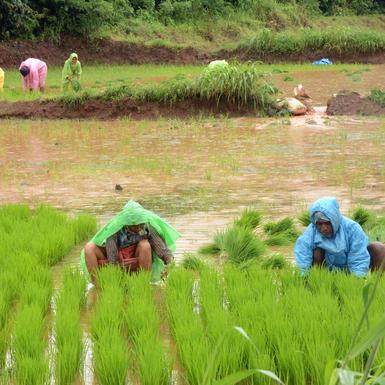India’s agricultural sector has been facing numerous challenges in recent years, including declining crop yields, rising input costs, and increasing competition from international markets. Despite these challenges, the sector remains a vital part of the country’s economy, employing millions of people and contributing significantly to the country’s GDP.
Agriculture is a significant contributor to India’s economy, accounting for around 18% of the country’s GDP. The sector is also a major source of employment, with millions of people engaged in farming and related activities. However, the sector is facing several challenges, including declining crop yields, rising input costs, and increasing competition from international markets.
The Indian government has been implementing various policies and initiatives to support the agricultural sector, including the Pradhan Mantri Kisan Samman Nidhi (PM-KISAN) scheme, which provides financial assistance to small and marginal farmers. The government has also been promoting organic farming and reducing the use of chemical pesticides and fertilizers.
Organic farming is a sustainable and environmentally friendly approach to agriculture that avoids the use of chemical pesticides and fertilizers. This approach not only benefits the environment but also improves the quality of the crops and increases the income of the farmers. The Indian government has been promoting organic farming through various initiatives, including the National Organic Farming Programme (NOFP), which provides financial assistance to farmers who adopt organic farming practices.
The use of technology is also playing a significant role in improving the efficiency and productivity of the agricultural sector. Precision agriculture, which involves the use of advanced technologies such as drones, satellite imaging, and data analytics, is helping farmers to optimize their crop yields and reduce waste.
Another area where technology is making a significant impact is in the area of agricultural marketing. The use of e-commerce platforms and mobile apps is enabling farmers to sell their produce directly to consumers, reducing the need for intermediaries and increasing their income. The Indian government has been promoting e-commerce in agriculture through various initiatives, including the Agricultural Marketing Infrastructure and Post-Harvest Management Scheme (AMIPM), which provides financial assistance to farmers who adopt e-commerce platforms.
The agricultural sector is a vital part of India’s economy, and it is essential that the government continues to support the sector through various policies and initiatives. The use of technology and sustainable practices is also crucial for improving the efficiency and productivity of the sector.
In conclusion, the agricultural sector is a vital part of India’s economy, and it is essential that the government continues to support the sector through various policies and initiatives. The use of technology and sustainable practices is also crucial for improving the efficiency and productivity of the sector.









